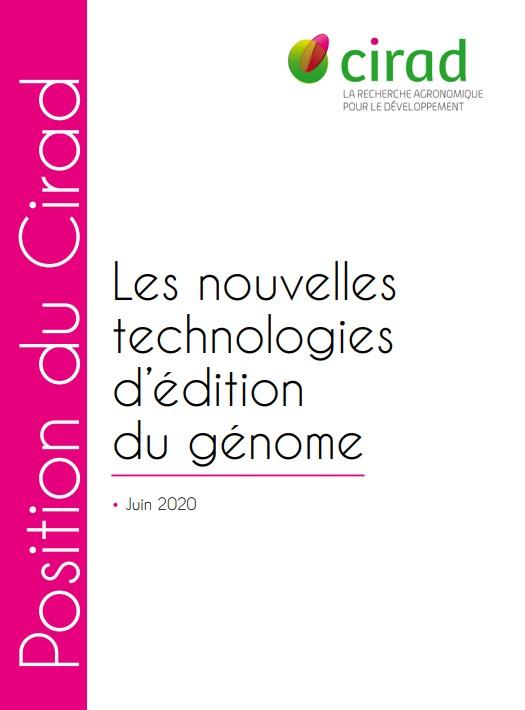Institutional news 4 February 2026
- Home
- CIRAD news
- News
- CIRAD's position on modern genome editing technology
CIRAD's position on modern genome editing technology

CIRAD, like INRAE, considers that public organizations have a responsibility to explore the benefits and limitations of such technology.
The two organizations feel that it is important to build knowledge so as to understand the living world better. Moreover, they recommend using European and national regulations to frame such research, and refer to the work of the High Council for Biotechnology (HCB). However, CIRAD has added a facet to each of these principles: international partnerships, particularly in tropical and Mediterranean countries,which are what characterize it and enable it to fulfil its remit. It has extended the scope of the paper to cover the animal kingdom, in line with the Ethics Committee statement issued in September 2019.
CIRAD has to be capable of responding to requests from its partners working within a range of changing regulatory frameworks. "To offer them the necessary expertise, we have to master these approaches as well as possible in terms of the technology involved", says Jean-Louis Noyer, the CIRAD Management Board's Biotechnology Officer. "But also in terms of assessing the impacts on an environmental, social, economic, legal and ethical level, both nationally and in the global South."
CIRAD must be in a position to help train national experts to support public policy building in their countries, and private and public partners involved in projects in tropical and Mediterranean countries.
Lastly, above and beyond the technology aspect, CIRAD scientists must be scrupulous in their research activities, taking an integrative approach including both current and future developments.



























